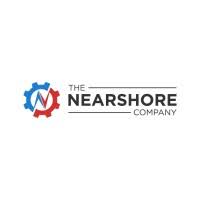Nearshore Company: The Benefits of Outsourcing to a Neighboring Country
In today’s globalized world, businesses are constantly seeking ways to optimize their operations and reduce costs without compromising the quality of their products or services. One approach that has gained significant popularity in recent years is outsourcing, particularly nearshore outsourcing.
A nearshore company refers to a business that is located in a neighboring country, typically within close geographic proximity. This model offers several advantages over traditional offshore outsourcing, where companies choose to contract services from distant countries.
First and foremost, one of the main benefits of partnering with a nearshore company is the geographical proximity. Being in close time zones and having similar cultural backgrounds can greatly facilitate communication and collaboration. This proximity allows for real-time interactions, making it easier to address any issues or concerns promptly. Additionally, it reduces language barriers and minimizes misunderstandings that can arise from differences in dialects or accents.
Another advantage of working with a nearshore company is the cost-effectiveness it offers. While labor costs in neighboring countries may be lower compared to domestic rates, they are often higher than those in offshore destinations. However, the overall cost savings can still be significant when considering factors such as travel expenses or time zone adjustments required for offshore collaborations. Additionally, nearshoring allows businesses to tap into talent pools that are skilled and experienced but may offer more competitive rates compared to their domestic counterparts.
Furthermore, nearshoring provides companies with access to specialized expertise that may not be readily available locally. Neighboring countries often have similar educational systems and industry standards, resulting in a workforce that possesses similar skills and competencies. This enables businesses to find highly qualified professionals who can contribute valuable insights and innovative solutions to their projects.
Collaborating with a nearshore company also offers enhanced flexibility and agility. With reduced travel times and cultural compatibility, companies can easily adapt to changing project requirements or address any unexpected challenges swiftly. Nearshore teams can quickly align with the company’s goals and values, making them an extension of the in-house team rather than just an external service provider.
Lastly, nearshoring promotes regional economic growth and fosters stronger ties between neighboring countries. By outsourcing to nearby nations, businesses contribute to job creation and economic development in those regions. This collaborative approach strengthens trade relationships, encourages knowledge sharing, and promotes a sense of partnership that can have long-lasting benefits for all parties involved.
In conclusion, partnering with a nearshore company offers numerous advantages for businesses seeking to optimize their operations. From improved communication and cost-effectiveness to access to specialized expertise and enhanced flexibility, nearshoring provides a strategic solution for companies looking to achieve their goals while maintaining high-quality standards. By leveraging the benefits of geographical proximity and cultural compatibility, businesses can forge successful partnerships that drive growth and innovation in today’s interconnected world.
Frequently Asked Questions: Nearshore Companies and Their Benefits, Choosing the Right Provider, Services Offered, Cost, and Quality Control
- What is a nearshore company?
- What are the benefits of using a nearshore company?
- How do I choose the right nearshore company for my business needs?
- What kind of services does a nearshore company offer?
- How much does it cost to use a nearshore company?
- How can I ensure quality control when working with a nearshore company?
What is a nearshore company?
A nearshore company refers to a business or service provider that is located in a neighboring country or region, typically in close geographic proximity to the client’s home country. It is a form of outsourcing where companies choose to partner with service providers in nearby countries rather than distant offshore destinations.
The concept of nearshoring emerged as a response to the challenges and limitations associated with traditional offshore outsourcing. While offshore outsourcing involves contracting services from countries located far away, nearshoring offers the advantage of working with companies that are closer in terms of time zone, culture, and language.
By collaborating with a nearshore company, businesses can benefit from various advantages. These include improved communication and collaboration due to similar time zones and cultural understanding. Proximity allows for real-time interactions, making it easier to address concerns promptly and foster effective teamwork.
Additionally, nearshore companies often offer cost advantages compared to domestic service providers. While labor costs may be lower than those in the client’s home country, they may still be higher compared to offshore destinations. However, overall cost savings can still be significant when considering factors such as travel expenses or time zone adjustments required for offshore collaborations.
Another advantage is access to specialized expertise. Neighboring countries often have similar educational systems and industry standards, resulting in a workforce that possesses similar skills and competencies. This enables businesses to find highly qualified professionals who can contribute valuable insights and innovative solutions to their projects.
Moreover, collaborating with a nearshore company provides enhanced flexibility and agility. With reduced travel times and cultural compatibility, companies can easily adapt to changing project requirements or address any unexpected challenges swiftly. Nearshore teams can quickly align with the company’s goals and values, making them an extension of the in-house team rather than just an external service provider.
Overall, a nearshore company offers businesses the opportunity to benefit from geographical proximity while leveraging cost-effectiveness, access to specialized expertise, improved communication, flexibility, and regional economic growth. It is a strategic approach to outsourcing that combines the advantages of offshore and onshore models, providing a balanced solution for companies seeking efficient and effective collaborations.
What are the benefits of using a nearshore company?
Using a nearshore company offers several benefits for businesses. Here are some key advantages:
- Proximity and Time Zone: Nearshore companies are located in neighboring countries, often within the same or similar time zones. This proximity allows for easier communication, collaboration, and real-time interactions. It eliminates the challenges of dealing with significant time differences that can occur when working with offshore companies in distant locations.
- Cultural Compatibility: Neighboring countries often share similar cultural backgrounds, which can lead to better understanding and smoother collaboration. Shared values, language dialects, and work ethics contribute to effective communication and minimize misunderstandings that can arise from vast cultural differences.
- Cost-effectiveness: While labor costs in neighboring countries may be higher compared to offshore destinations, they are typically lower than domestic rates. Nearshoring offers cost savings by providing access to skilled professionals at more competitive rates compared to hiring locally. Moreover, reduced travel expenses and fewer time zone adjustments further contribute to overall cost-effectiveness.
- Access to Specialized Expertise: Nearshore companies often possess a workforce with similar educational backgrounds and industry standards as their client’s country. This similarity enables businesses to find highly qualified professionals with specialized expertise who can bring valuable insights and innovative solutions to their projects.
- Flexibility and Agility: The geographical proximity of a nearshore company allows for increased flexibility in project management. Companies can easily adapt to changing requirements or address unexpected challenges promptly due to reduced travel times and cultural compatibility. Nearshore teams can quickly align with the company’s goals, making them an extension of the in-house team rather than just an external service provider.
- Regulatory Compliance: Nearshore companies located in neighboring countries often have a better understanding of local regulations and compliance requirements that may be similar or aligned with those of the client’s country. This ensures smoother adherence to legal frameworks and reduces potential risks associated with unfamiliar regulations.
- Regional Economic Growth: By outsourcing to neighboring countries, businesses contribute to regional economic development and job creation. This collaborative approach strengthens trade relationships, encourages knowledge sharing, and fosters a sense of partnership between countries.
In summary, using a nearshore company offers benefits such as improved communication, cultural compatibility, cost-effectiveness, access to specialized expertise, flexibility in project management, regulatory compliance, and regional economic growth. These advantages make nearshoring an attractive option for businesses seeking efficient and effective solutions while maintaining high-quality standards.
How do I choose the right nearshore company for my business needs?
Choosing the right nearshore company for your business needs requires careful consideration and evaluation. Here are some key factors to consider when making your decision:
- Expertise and Experience: Assess the nearshore company’s expertise in the specific services or technologies you require. Look for a track record of successful projects and experience in your industry. Consider their portfolio, client testimonials, and case studies to gauge their capabilities.
- Quality and Standards: Evaluate the nearshore company’s quality standards, certifications, and processes. Ensure they follow industry best practices and have a commitment to delivering high-quality results.
- Communication and Collaboration: Effective communication is crucial when working with a nearshore team. Assess their English proficiency or any other required language skills. Evaluate their communication channels, project management tools, and availability to ensure smooth collaboration.
- Cultural Compatibility: Consider the cultural compatibility between your business and the nearshore company’s location. Look for similarities in work ethics, values, and business practices to ensure a harmonious partnership.
- Time Zone Alignment: Evaluate the time zone difference between your location and the nearshore company’s location. Opt for a nearshore partner with overlapping working hours to facilitate real-time communication and minimize delays.
- Scalability: Consider your future growth plans and assess if the nearshore company can accommodate your evolving needs. Flexibility in team size, resources, and project management capabilities are essential factors to consider.
- Data Security: Ensure that the nearshore company has robust data security measures in place to protect your sensitive information. Inquire about their data protection policies, compliance with regulations (such as GDPR), and confidentiality agreements.
- Cost-effectiveness: While cost should not be the sole determining factor, it is still an important consideration. Compare pricing models of different nearshore companies while keeping in mind their expertise, quality of work, and added value they can bring to your projects.
- Location Stability: Assess the stability and political climate of the nearshore country. Consider factors such as economic conditions, legal frameworks, and potential risks that may impact your partnership in the long run.
- Client References: Request client references from the nearshore company and reach out to their past or current clients to gather feedback on their performance, reliability, and overall satisfaction.
By carefully evaluating these factors, you can make an informed decision and choose a nearshore company that aligns with your business needs, goals, and values. Remember to conduct thorough research, ask relevant questions during the selection process, and seek recommendations from trusted sources if possible.
What kind of services does a nearshore company offer?
A nearshore company typically offers a wide range of services in various industries. Some common services provided by nearshore companies include:
- Software Development: Nearshore companies often specialize in software development, offering services such as web application development, mobile app development, custom software development, and software testing and quality assurance.
- IT Consulting: Nearshore companies can provide expert IT consulting services to help businesses optimize their technology infrastructure, improve processes, and implement effective IT strategies.
- Digital Marketing: Nearshore companies may offer digital marketing services including search engine optimization (SEO), pay-per-click (PPC) advertising, social media marketing, content creation, email marketing, and analytics to help businesses enhance their online presence and reach their target audience.
- Web Design and Development: Nearshore companies can design and develop visually appealing and user-friendly websites that align with a business’s brand identity and objectives. This includes front-end development, back-end programming, e-commerce solutions, responsive design, and website maintenance.
- Data Analytics: Nearshore companies may provide data analytics services to help businesses gather insights from large volumes of data. This can involve data mining, data visualization, predictive analytics, and business intelligence solutions to drive informed decision-making.
- Customer Support: Nearshore companies often offer customer support services including technical support via phone or chat channels for products or services. They can assist customers with troubleshooting issues or providing guidance on product usage.
- Quality Assurance: Nearshore companies may have dedicated teams for quality assurance (QA) testing to ensure that software applications or websites meet the highest standards of functionality, usability, security, and performance.
- Cloud Services: Nearshore providers can assist businesses in leveraging cloud computing technologies by offering cloud consulting services, cloud infrastructure setup and management, migration to the cloud environment, and ongoing support.
- Outsourced Business Processes: Some nearshore companies also specialize in outsourced business processes such as finance and accounting, human resources, customer relationship management (CRM), data entry, and other administrative tasks.
It’s important to note that the services offered by nearshore companies can vary based on their expertise and industry focus. Businesses can choose specific services or engage in comprehensive partnerships depending on their unique requirements and objectives.
How much does it cost to use a nearshore company?
The cost of using a nearshore company can vary depending on several factors such as the specific services required, the complexity of the project, the location of the nearshore company, and the skill level of the professionals involved. Generally, nearshore outsourcing rates tend to be higher compared to offshore rates but lower than domestic rates.
Nearshore companies located in countries with a lower cost of living may offer more competitive pricing compared to those in countries with higher living costs. For example, nearshore companies in Latin America or Eastern Europe often provide cost-effective solutions while maintaining high-quality standards.
It’s important to note that pricing models can differ among nearshore companies. Some may charge an hourly rate for their services, while others may offer fixed project-based pricing. Additionally, factors such as the duration of the project and any additional requirements or customizations can influence the overall cost.
To get a better understanding of the specific costs associated with using a nearshore company, it is recommended to reach out to potential service providers and discuss your project requirements in detail. This will allow them to provide you with accurate pricing estimates tailored to your specific needs.
Remember that while cost is an important consideration when choosing a nearshore company, it should not be the sole determining factor. It is crucial to evaluate other aspects such as their expertise, track record, communication capabilities, and cultural compatibility to ensure a successful partnership that meets your business objectives.
How can I ensure quality control when working with a nearshore company?
Ensuring quality control when working with a nearshore company is crucial to the success of your project. Here are some key strategies to help you maintain high-quality standards:
- Thoroughly vet the nearshore company: Before entering into a partnership, conduct thorough research on the company’s reputation, experience, and expertise. Look for reviews, testimonials, and case studies to gauge their track record and ensure they have a solid reputation for delivering quality work.
- Clearly define project requirements: Provide detailed documentation outlining your project requirements, objectives, and expectations. Clearly communicate your quality standards, desired outcomes, and any specific guidelines or industry regulations that need to be adhered to. This will help set clear expectations from the beginning.
- Establish effective communication channels: Communication is vital in any outsourcing relationship. Ensure that you have open and regular channels of communication with the nearshore team. Use video conferencing tools, project management software, email, and instant messaging platforms to facilitate seamless collaboration and real-time updates.
- Conduct regular progress reviews: Regularly review the progress of the project with the nearshore team to ensure it aligns with your expectations. Schedule periodic meetings or checkpoints to discuss milestones achieved, address any concerns or challenges, and provide feedback on deliverables.
- Implement quality assurance processes: Define clear quality assurance processes that outline how the nearshore company will test and validate their work before delivering it to you. This may include conducting thorough testing phases, performing code reviews, implementing automated testing tools, or following industry-specific quality standards.
- Perform regular audits: Periodically audit the work being done by the nearshore team to assess its quality against predefined benchmarks or criteria. This can involve reviewing codebases, analyzing documentation or reports generated by the team, or conducting user acceptance testing (UAT) on delivered products.
- Foster a collaborative culture: Create an environment that encourages collaboration between your in-house team and the nearshore team. Promote knowledge sharing, encourage open dialogue, and foster a sense of teamwork to ensure everyone is aligned with the project goals and quality standards.
- Build a long-term relationship: If possible, aim for a long-term partnership with the nearshore company. This allows you to establish a deeper understanding of each other’s working styles, processes, and quality expectations over time. Long-term partnerships often result in better collaboration and improved quality control.
By implementing these strategies, you can establish effective quality control measures when working with a nearshore company. Remember that ongoing communication, collaboration, and monitoring are key to maintaining high-quality standards throughout the duration of your project.




